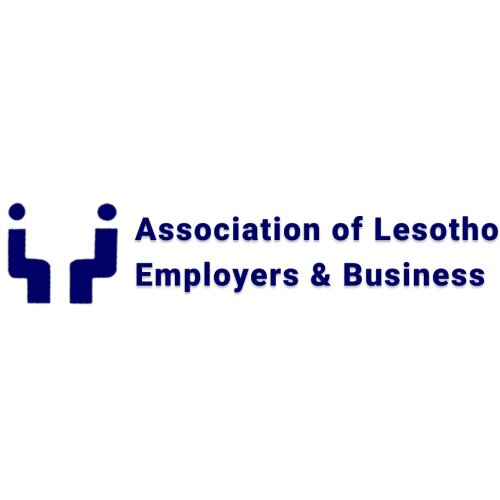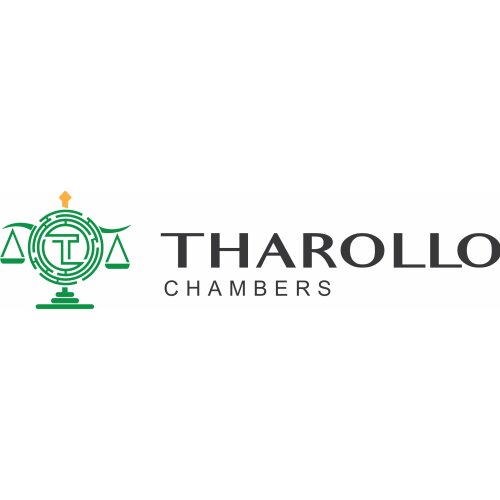Best Employment Rights Lawyers in Maseru
Share your needs with us, get contacted by law firms.
Free. Takes 2 min.
List of the best lawyers in Maseru, Lesotho
About Employment Rights Law in Maseru, Lesotho
Employment Rights Law in Maseru, Lesotho, is designed to protect the rights and interests of both employees and employers. The legal framework provides guidelines on employment contracts, wage regulations, working conditions, discrimination, unfair dismissals, and labor disputes. Employment rights aim to ensure fair treatment in the workplace, safeguard job security, and promote equitable labor practices, thereby fostering a balanced relationship between workers and their employers.
Why You May Need a Lawyer
There are several situations where seeking legal advice regarding employment rights may be necessary. Common instances include:
- Unfair dismissal or wrongful termination claims.
- Discrimination or harassment cases at the workplace.
- Disputes relating to wage and working conditions.
- Negotiation of employment contracts and benefits.
- Retrenchment or redundancy processes.
- Seeking clarification on labor rights and employer obligations.
Legal intervention can help navigate complex employment issues, ensure compliance with local laws, and secure the best possible outcome for individuals involved.
Local Laws Overview
Key aspects of employment rights under Lesotho's legal framework include:
- Labor Code Order of 1992: This is the primary legislation governing employment relationships, dictating employment standards and workers' rights.
- Minimum Wage Orders: The Ministry of Labor periodically reviews and publishes minimum wage standards applicable to various sectors to ensure fair remuneration.
- Occupational Health and Safety: Regulations require employers to provide a safe working environment and adhere to safety standards.
- Dispute Resolution: The Directorate of Dispute Prevention and Resolution helps mediate conflicts between employers and employees.
- Leave Entitlements: Employees are entitled to annual leave, maternity leave, and sick leave as prescribed by the law.
Frequently Asked Questions
What are my basic employment rights in Lesotho?
Basic employment rights include fair wages, safe working conditions, protection against discrimination, and entitlements to leave as specified by the Labor Code Order of 1992.
How are disputes between employees and employers resolved?
Disputes are generally resolved through negotiation, mediation by the Directorate of Dispute Prevention and Resolution, or legal proceedings if necessary.
What should I do if I experience workplace discrimination?
If you experience discrimination, you can file a complaint with your employer, seek mediation, or contact a legal professional for advice on further action, including reporting to the Labor Court.
Are there any protections against unfair dismissal?
Yes, employers must provide valid reasons for dismissal based on employee conduct, capacity, or operational requirements and follow fair procedures as laid out by the law.
Am I entitled to a written employment contract?
Yes, employees should receive a written contract outlining the terms of employment, including duties, remuneration, and conditions of employment.
What are the minimum wage regulations?
The minimum wage is set by the government periodically and varies by industry. Employers must comply with these regulations.
How much annual leave am I entitled to?
Employees are entitled to a minimum of 12 working days of paid annual leave for each completed year of service.
Can I join a trade union?
Yes, employees have the right to join and participate in trade union activities without fear of reprisal or discrimination.
What is occupational health and safety in the workplace?
These are standards set to ensure a safe and healthy working environment, requiring employers to mitigate workplace hazards and provide necessary safety equipment and training.
Who do I contact for further labor law advice?
You can contact legal professionals specializing in labor law or governmental bodies like the Ministry of Labor for guidance.
Additional Resources
For further assistance with employment rights, consider reaching out to the following resources:
- Ministry of Labor and Employment: Offers guidance on employment rights and enforces labor laws.
- Directorate of Dispute Prevention and Resolution: Provides mediation and arbitration services for labor disputes.
- Legal Aid Clinic: Provides legal assistance and representation for low-income individuals.
- Trade Unions: Provide support and advocacy for workers in various sectors.
Next Steps
If you need legal assistance regarding employment rights, consider doing the following:
- Document any incidents or issues you’re experiencing in the workplace.
- Contact a local lawyer specializing in employment law for personalized legal advice.
- Engage with the appropriate governmental departments for guidance and support.
- Consider discussing your situation with a trade union representative if applicable.
Taking swift and informed action can help protect your rights and ensure a fair resolution of employment issues.
Lawzana helps you find the best lawyers and law firms in Maseru through a curated and pre-screened list of qualified legal professionals. Our platform offers rankings and detailed profiles of attorneys and law firms, allowing you to compare based on practice areas, including Employment Rights, experience, and client feedback.
Each profile includes a description of the firm's areas of practice, client reviews, team members and partners, year of establishment, spoken languages, office locations, contact information, social media presence, and any published articles or resources. Most firms on our platform speak English and are experienced in both local and international legal matters.
Get a quote from top-rated law firms in Maseru, Lesotho — quickly, securely, and without unnecessary hassle.
Disclaimer:
The information provided on this page is for general informational purposes only and does not constitute legal advice. While we strive to ensure the accuracy and relevance of the content, legal information may change over time, and interpretations of the law can vary. You should always consult with a qualified legal professional for advice specific to your situation.
We disclaim all liability for actions taken or not taken based on the content of this page. If you believe any information is incorrect or outdated, please contact us, and we will review and update it where appropriate.












